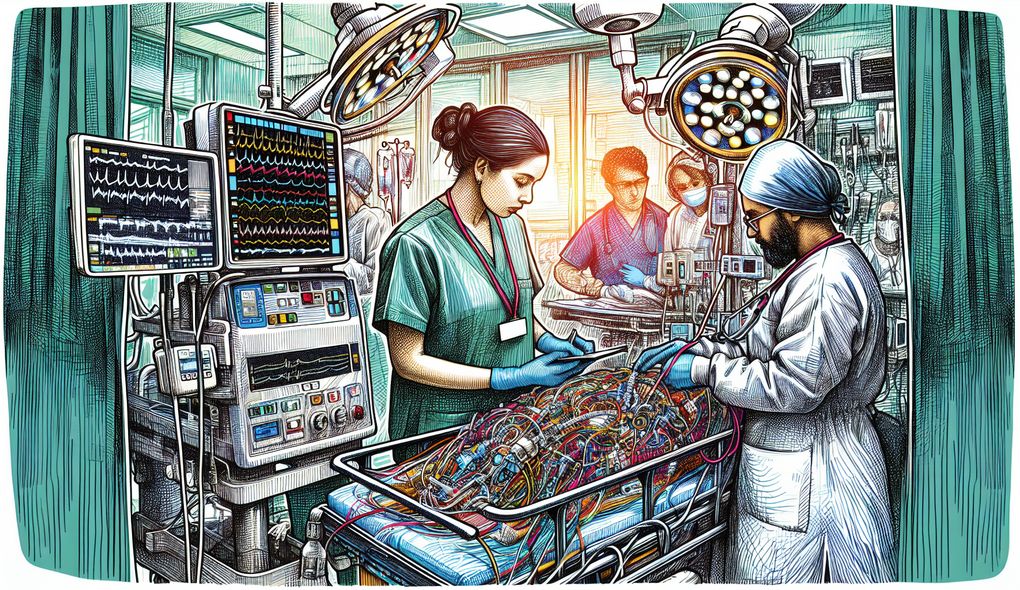Tell me about a time when you had to provide care to a patient with end-of-life needs. How did you handle it?
JUNIOR LEVEL

Sample answer to the question:
During my residency, I had a patient with end-of-life needs. It was a challenging experience, but I focused on providing compassionate care. I ensured that the patient was comfortable, managed their pain effectively, and communicated openly with them and their family about their prognosis and treatment options. I also collaborated closely with the palliative care team to address their emotional and spiritual needs. While it was emotionally draining, I feel privileged to have been there for the patient and their family during such a difficult time.
Here is a more solid answer:
During my residency, I encountered a patient with end-stage cancer who required end-of-life care. I was responsible for managing their pain and symptoms, ensuring their comfort and dignity. I collaborated with the palliative care team to develop a comprehensive care plan that addressed their physical, emotional, and spiritual needs. I regularly communicated with the patient and their family, providing them with honest and empathetic updates on the prognosis and available treatment options. It was a challenging experience, but I prioritized the patient's well-being and supported their family throughout the process. I also engaged in ongoing education to enhance my knowledge of end-of-life care and palliative medicine.
Why is this a more solid answer?
The solid answer provides more specific details and examples of the candidate's clinical skills, problem-solving abilities, and communication skills. It demonstrates their ability to work effectively in a multidisciplinary team and their dedication to continued medical education and professional development. However, it could further enhance by elaborating on specific procedures performed, decision-making processes, and the outcomes of the care provided.
An example of a exceptional answer:
During my residency, I encountered a patient with end-stage pancreatic cancer who required extensive end-of-life care. The patient was experiencing severe pain and discomfort, so I immediately implemented a detailed pain management plan that involved a combination of opioids, non-opioid analgesics, and integrative therapies like music therapy and massage. I closely monitored the patient's response to the treatment and made adjustments as necessary to achieve optimal pain control and enhance their quality of life. Additionally, I utilized my strong problem-solving skills to address other challenging symptoms such as nausea, fatigue, and anxiety. I collaborated closely with the palliative care team to provide holistic support, including counseling services, spiritual care, and assistance with advance care planning. I regularly met with the patient and their family to discuss their goals of care, answer their questions, and provide emotional support. The patient's family expressed their gratitude for the compassionate care I provided and the open lines of communication established. Reflecting on this experience, I recognize the importance of constantly improving my knowledge and skills in end-of-life care through attending conferences, reading relevant literature, and seeking mentorship from experienced palliative care physicians.
Why is this an exceptional answer?
The exceptional answer showcases the candidate's strong clinical skills and knowledge of critical care procedures, their ability to work effectively in a multidisciplinary team, their excellent decision-making and problem-solving skills, their strong communication skills with the ability to convey complex information to patients and their families, their high emotional intelligence to cope with severe illness and end-of-life care, and their dedication to continued medical education and professional development. The candidate goes above and beyond by providing specific details of the pain management plan, utilization of integrative therapies, collaboration with the palliative care team, and the impact of their care on the patient and their family.
How to prepare for this question:
- Reflect on previous experiences providing end-of-life care and identify specific cases where you demonstrated exceptional clinical skills, problem-solving abilities, and communication skills.
- Research current practices and advancements in end-of-life care, including pain management strategies, symptom control, and psychosocial support.
- Review ethical considerations and guidelines related to end-of-life care, such as advance care planning and support for families.
- Seek opportunities for continuing education in end-of-life care, such as conferences, workshops, and online courses.
- Consider seeking mentorship from experienced palliative care physicians to enhance your understanding and skills in providing care to patients with end-of-life needs.
What are interviewers evaluating with this question?
- Strong clinical skills and knowledge of critical care procedures.
- Ability to work effectively in a multidisciplinary team.
- Excellent decision-making and problem-solving skills.
- Strong communication skills with the ability to convey complex information to patients and their families.
- High emotional intelligence to cope with severe illness and end-of-life care.
- Dedication to continued medical education and professional development.

